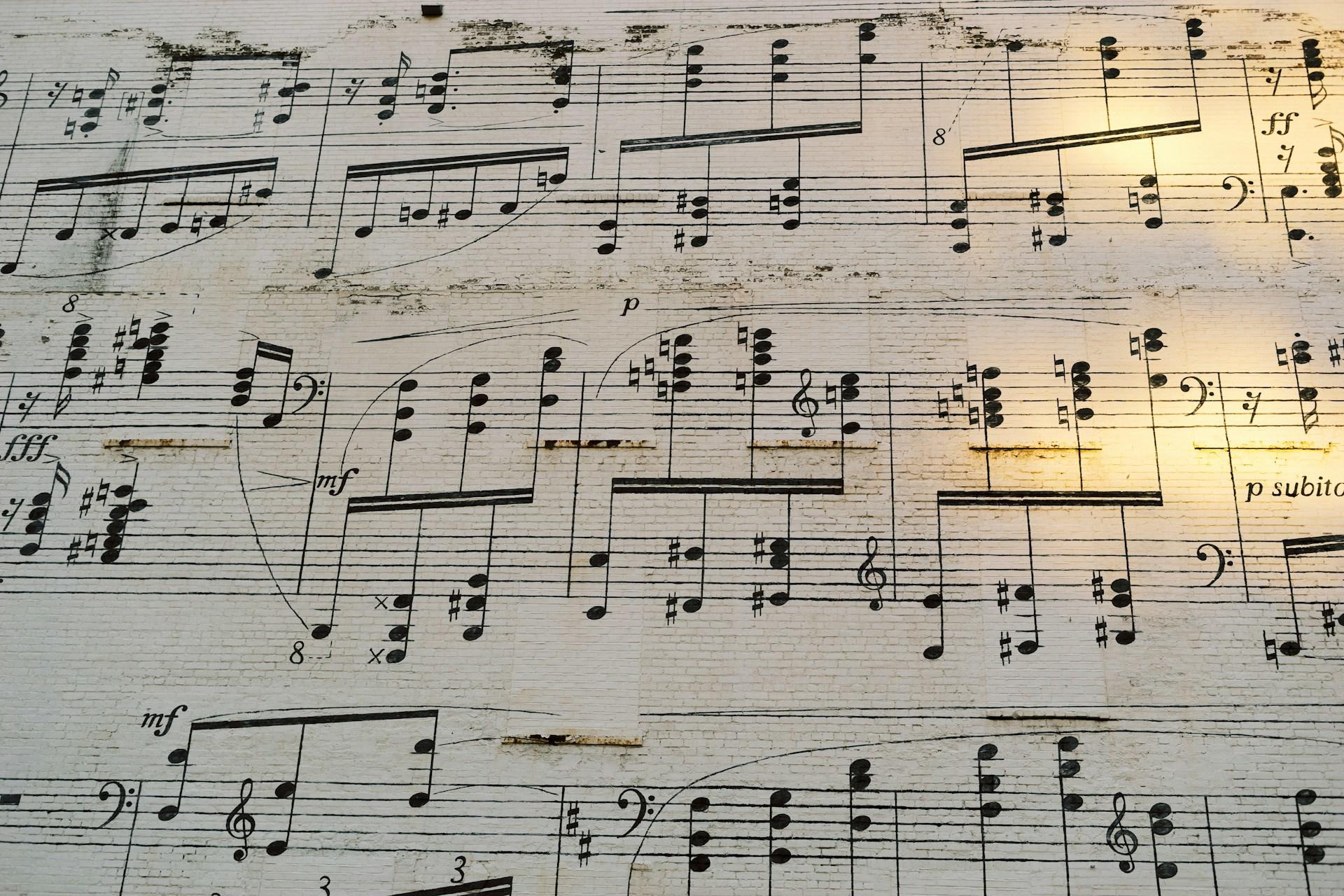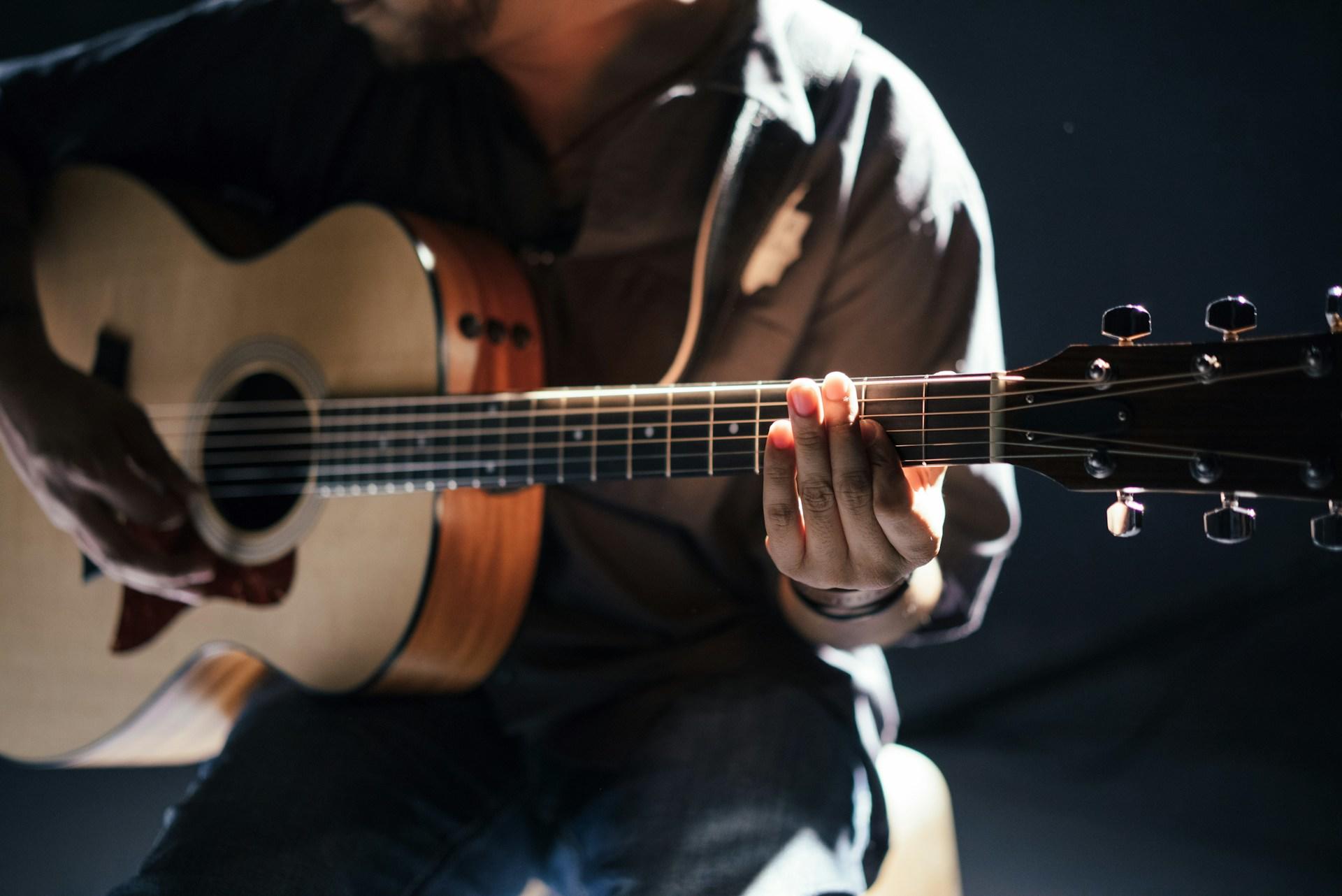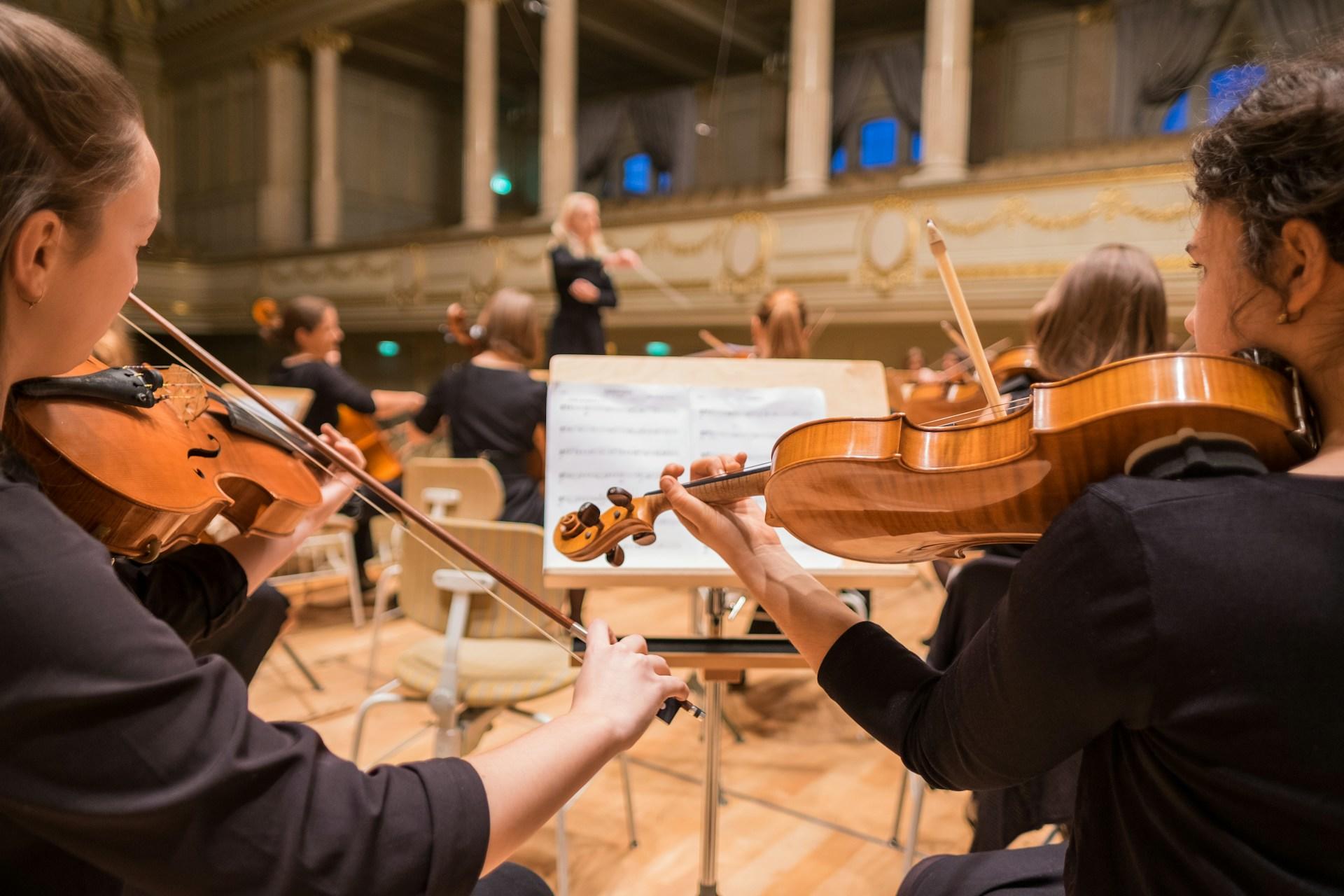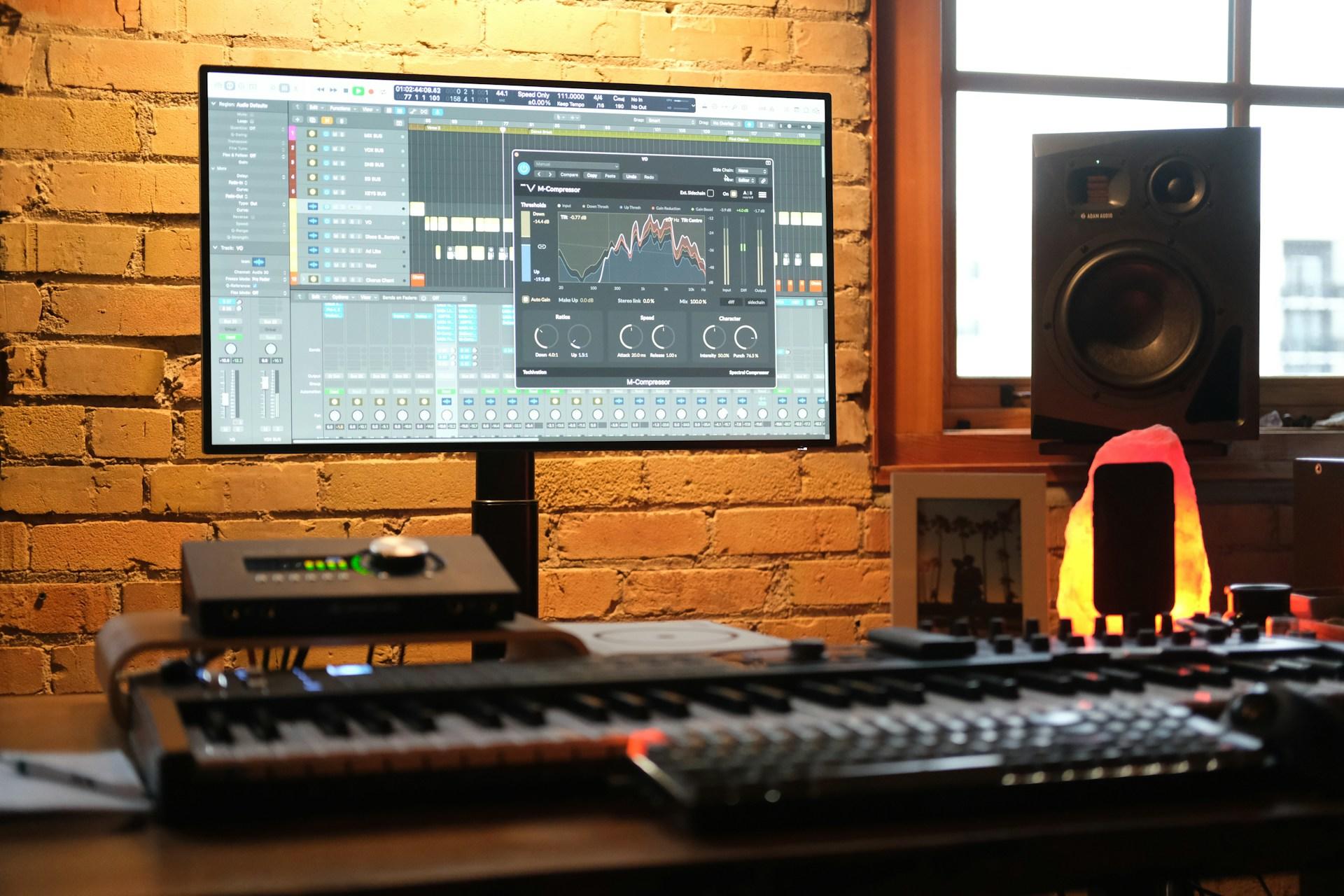Chicago, with its rich musical heritage, stands as a beacon for music enthusiasts. Its vibrant music scene, both past and present, has made it a renowned destination for those interested in music theory.
Chicago, a melting pot of musical genres, has been a home for blues, jazz, gospel, and house music for years.
With that in mind, here's why you should study music theory, the places in Chicago that are best for studying it, and some of the best ways to learn more about music.
Here are institutions that we mention in this article, but keep reading to find out more about them.
| Institution | Summary |
|---|---|
| Columbia College Chicago | Provides BA in Music and BM in Contemporary, Urban, and Popular Music with a focus on music theory, performance, and modern music genres. |
| DePaul University - School of Music | Offers Bachelor of Music (BM) and Master of Music (MM) degrees with core courses in music theory, ear training, harmony, and orchestration. |
| Northwestern University - Bienen School of Music | Prestigious school offering BM, MM, DMA, and PhD programs with specializations in music theory and cognition, composition, and performance. |
| Roosevelt University - Chicago College of Performing Arts | Offers BM, MM, and Diploma in Music Performance, with options in classical, jazz, composition, and music education. |
| The University of Chicago - Department of Music | Offers undergraduate and graduate programs, including PhD tracks in Music History, Theory, and Composition. |

What Exactly Is Music Theory?
Music theory is the language of music. It's the science and theory that underpins music and explains why it sounds the way it does.

It focuses on elements of music like melody, harmony, rhythm, and form. Musicians can use it to create and understand music.
Studying music theory is essential for anyone who wants to work in music or study it. It helps you understand how music is constructed, how to compose and write your own music, perform music accurately, and analyze it effectively.
Another way music theory is like the language of music is by establishing and codifying some aspects of music so that any musician who's studied music theory can talk to another musician and understand what they mean.
A good knowledge of music theory will help you to improvise music cohesively, which is great for jam sessions!
DePaul University - School of Music
DePaul University's School of Music is located in the heart of Chicago and provides excellent music education.
DePaul's music school blends traditional and contemporary music teaching approaches and offers a range of degree programs, including the Bachelor of Music (BM) and Master of Music (MM).
There are also certificates in performance qualifications available.
Music majors and those studying music at DePaul can cover music theory through core courses that cover harmony, ear training, sight singing, form and analysis, counterpoint, and orchestration and arranging.
Beyond music theory, there are also opportunities within the local community and academic opportunities in areas like music history and musicology.
Here, you can enjoy the DePaul Symphony Orchestra performing Stravinsky's "The Rite of Spring"
The University of Chicago - Department of Music
The University of Chicago's Department of Music offers both undergraduate and graduate opportunities in music.
The Bachelor of Arts (BA) in Music program covers music education, including music theory, history, ethnomusicology, and composition. With many options, students can focus on performance, music theory, or academic music studies.
The PhD in Music offers three main tracks:
Music History and Theory
Ethnomusicology
Composition
Even though the University of Chicago isn't a conservatory, there are still many performance opportunities for music majors, including the University Symphony Orchestra, the University Wind Ensemble, the University of Chicago Motet Choir and Chamber Choir, the New Music Ensemble, and other ensembles focusing on global music traditions.
Enjoy this performance from the UChaigo Symphony Orchestra and the UChicago Chorus.
You could also go to the "Live Music Capital of the World" and study music theory in Austin, Texas.
Northwestern University - Bienen School of Music
Northwestern University's Bienen School of Music is among the most prestigious music schools in the United States.
Bienen School of Music, part of the prestigious Northwestern University in Evanston, Illinois, just north of Chicago, offers very competitive programs.
Students can study both undergraduate and graduate programs at the Bienen School of Music, where Bachelor of Music (BM), Master of Music (MM), Doctor of Musical Arts (DMA), and PhD in Music Theory and Cognition programs are available.
The Bachelor of Music (BM) program offers specializations in classical and jazz performance, composition, music education, music theory and cognition, and musicology.
The Bachelor of Arts (BA) in Music or Bachelor of Science (BS) in Music programs are typically more flexible and allow students to combine music theory studies with other academic disciplines.
The Master of Music (MM) program allows graduates to specialize in performance, conducting, composition, music education, music theory and cognition, and musicology.
in an octave, but the combinations are endless!

Columbia College Chicago
Columbia College Chicago is a private liberal arts college in Chicago's South Loop. This school is famous for its creative and performing arts programs, particularly music, theater, dance, and film. Naturally, we're interested in the Department of Music's offerings.
Columbia College Chicago's Department of Music offers courses in music theory, performance, contemporary music styles, music business, and music technology.
Degree programs include the Bachelor of Arts (BA) in Music and the Bachelor of Music (BM) in Contemporary, Urban, and Popular Music.
The BA in Music includes music theory, performance, and history courses, plus many options to explore other academic interests.
The BM in Contemporary, Urban, and Popular Music focuses on genres like rock, hip-hop, jazz, and electronic music with options to specialize in performance, songwriting, or production.

Roosevelt University - Chicago College of Performing Arts
The Chicago College of Performing Arts (CCPA) at Roosevelt University is in downtown Chicago and offers music and theater programs. These programs include the Bachelor of Music (BM), Master of Music (MM), and the Diploma in Music Performance.
Bachelor of Music students can specialize in classical performance, jazz and contemporary music, composition, or musical education.
The Master of Music program allows for specializations in performance, conducting, composition, and music education.
Jobs That Require Music Theory
There are plenty of jobs that include or require music theory. Naturally, every type of musician should understand music theory, whether formally or otherwise.
It's usually better for musicians, even self-taught musicians, to study music theory at some point to improve their playing, songwriting, or overall understanding of music.
For certain specific careers, music theory isn't essential. Still, a degree proving your knowledge of music theory may be required.
Music theory is not just a theoretical concept, but a practical necessity for a variety of careers.
These include composers, music teachers, professors, music arrangers, and orchestrators, for example.

Resources for Learning Music Theory
If you'd like to learn more about music theory, plenty of resources are available online.
Musictheory.net
The aptly named musictheory.net is a free and comprehensive guide to almost every aspect of music theory. It includes interactive lessons, practice exercises for ear training, and even customizable theory exercises. This is a good resource for beginner to intermediate music theory.
Teoria
Teroia is another music theory website with exercises and drills. It allows musicians to learn more about rhythm, intervals, chords, and sight-singing and covers topics like harmony, counterpoint, and melody.
Ear training exercises also teach interval recognition, chord identification, scale identification, melodic dictation, and rhythmic dictation.
Much like with musictheory.net, you can also customize your practice, altering how much of each activity you do and what level these activities are at. After all, students don't learn music theory concepts uniformly so you might excel in some areas while struggling in others.

Hooktheory
Hooktheory is another great online resource for learning about music theory. Hooktheory makes learning music theory fun and interactive, particularly for those interested in composing and songwriting.
The Hookpad software is an interactive songwriting tool and learning platform, which can help a lot with writing music. You can use it to generate chord progression, get music theory assistance, and as a reference with its chord database and analysis of real-world songs.
Hooktheory also has published books, Hooktheory I and Hooktheory II teaches music theory through popular songs.
YouTube Channels
There are also many popular YouTube channels, such as Adam Neely, David Bennett Piano, and Music Matters, which all have videos on music theory and lessons.
Adam Neely is a composer and music educator whose videos explore music theory, often jazz theory.
David Bennett applies music theory to popular music and songwriting, explaining why certain songs are great and what makes certain melodies so effective.
Music Matters includes comprehensive theory lessons on areas of music theory like harmonic analysis, modulation, cadences, scales, and modes.
Learn Music Theory with Superprof
If you'd like to learn more about music theory in a way that's tailored for you, we'd recommend looking for a dedicated private tutor.
After all, private tutors typically work with individual students, allowing them to plan and adapt each session to the student.
You can choose what to study, which songs to use, and adjust your sessions according to your background in music. Whether you like classical or chill ambient music, private tutors in Chicago and nationwide are ready to help students from any background.
On the Superprof website, you can search for music theory tutors or tutors focusing on whatever musical instrument you play.
Many tutors offer the first session for free, so you can try a few before choosing the one that's right for you and your musical education.
Find the perfect music theory tutor on Superprof today!















